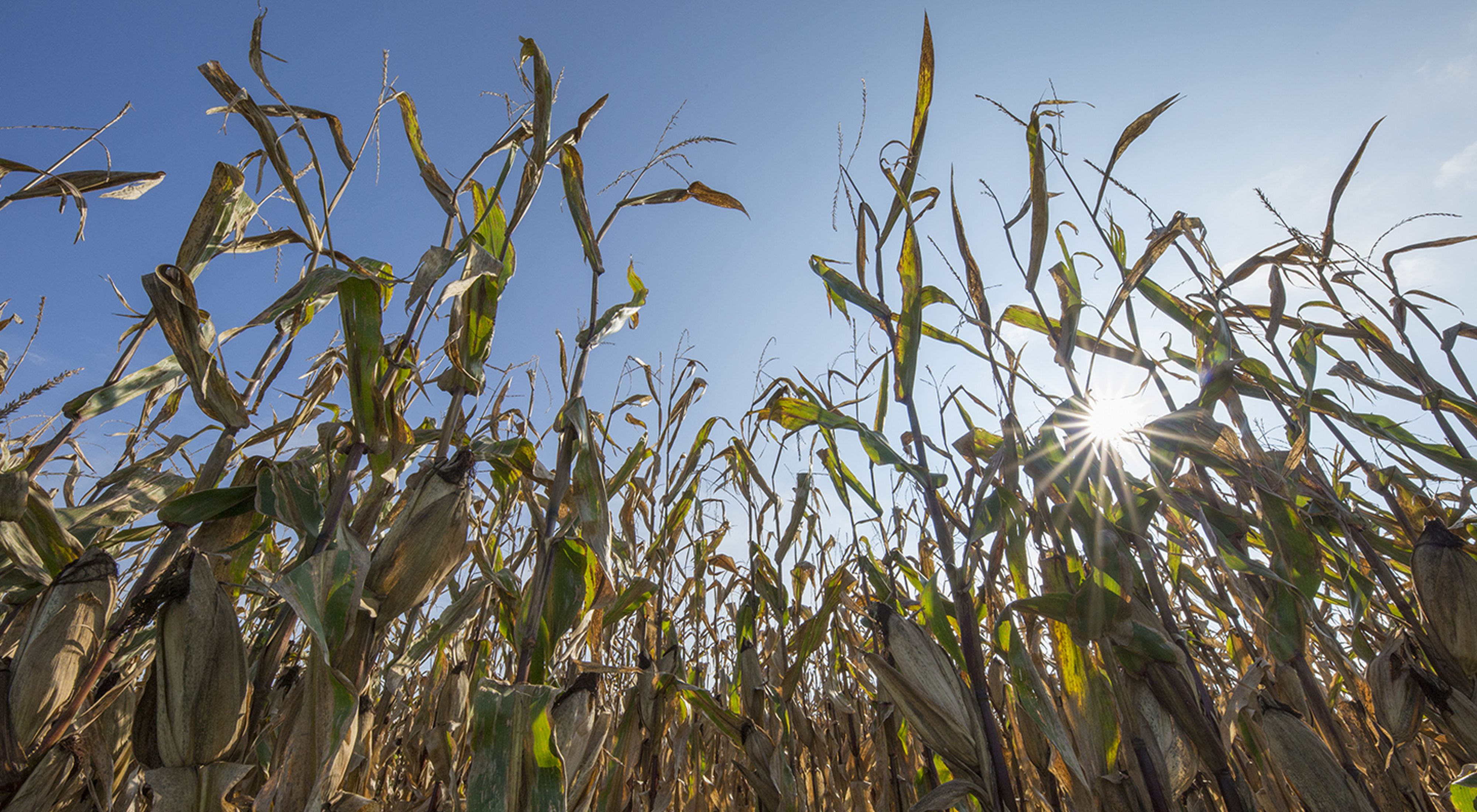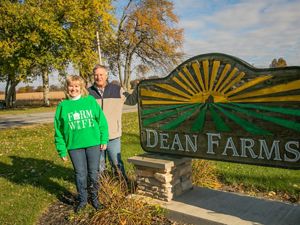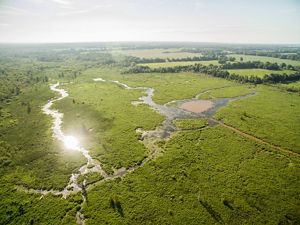Conservation Agriculture
Scaling up The Nature Conservancy's role in Kentucky farming.
Agriculture supports life on earth. Farmers produce food, fuel and fiber that communities need to survive and thrive. The agricultural industry is critical to Kentucky’s economy, supporting more than 250,000 jobs and nearly $50 billion of economic impact. Almost half of Kentucky’s land, about 12 million acres, is farmland.
Yet agriculture has a big impact on nature. The needs of a growing population have fueled conversion of wildlife habitat and wetlands to agricultural land, threatening biodiversity. Along with urban sources, nutrient run-off from croplands contributes excess nitrogen and phosphorous into rivers, including the Mississippi River in western Kentucky. This run-off affects water quality in Kentucky all the way to the Gulf of Mexico, where a large dead zone forms. Kentucky leads the way in no-till farming, a critical practice for soil health that reduces erosion and nutrient runoff and increases soil carbon. However, our state is also a significant contributor of nutrient pollution relative to other states.

The Kentucky chapter took its first steps into the agricultural sector years ago, working one-on-one with farmers to promote conservation agriculture practices such as no-till farming and cover-cropping. We also work with farmers to retire frequently flooded cropland in floodplains and restore these lands to wetlands. Now, we are diving deeper into the world of agriculture, with a new strategy to engage farmers, their suppliers, and companies purchasing agricultural products.
Kentucky’s New Agriculture Strategy
Kentucky’s new agricultural strategy focuses on the western half of the state, where the Mississippi River and the state’s most intensive row cropping is located. Currently, the Kentucky chapter works with farm groups and the Natural Resources Conservation Service (NRCS) to support on-farm demonstration sites to show the benefits of cover-cropping—growing a non-cash crop during the winter to protect and build soil. Best estimates indicate cover-cropping reduces nitrogen run-off by approximately 30 percent, and phosphorus run-off by around 50 percent. Such demonstration projects are meant to show the technical feasibility and real-world benefits of cover crops and other conservation practices.
“We can’t achieve the scale that needs to be achieved by just working directly with farmers,” says Zach Luttrell, director of agriculture for the Kentucky and Tennessee chapters. “We’re still promoting the same ground-level outcomes as before—things like cover-cropping, no-till farming and nutrient management—but we’re beginning to work at a larger scale as we try to influence key decision-makers throughout the supply chain.”
Demonstrations will remain an important part of the Kentucky ag strategy. They are also an effective way to get the word out about conservation practices. Field days, farmer-to-farmer networks, and outreach via trusted farm groups provide credible sources of information about conservation agriculture to a wide audience.
Conservation Agriculture




























Finding New Resources
A key issue with conservation agriculture is finding funding sources for farmers to take up these practices. It can be challenging to make in-field practices such as cover-cropping profitable in the short-term, for example. Edge of field practices, such as stream buffers and otherwise taking marginal land out of production offer significant conservation benefits such as nutrient reduction and carbon sequestration but can also be costly to farmers.
Luttrell says companies within the agricultural supply chain may be able to help supply new resources to help farmers transition to more conservation-friendly practices. Bridging knowledge gaps and building relationships are foundational to Kentucky’s agricultural strategy. Many food companies have ambitious greenhouse gas emission reduction goals. Kentucky’s new strategy includes working with these corporations to help bring their sustainability plans from the board room to the field.
“It’s an exciting time to be working in this arena. There is a greater and greater realization around the importance of sustainable agriculture,” Luttrell says. “Agriculture will have to meet increasing demands from a growing population while also helping the environment. New ideas are needed to meet this challenge. Kentucky’s ag program stands ready to be part of the solution.”
Stand Up For Nature
Support our work to protect nature in Kentucky.



